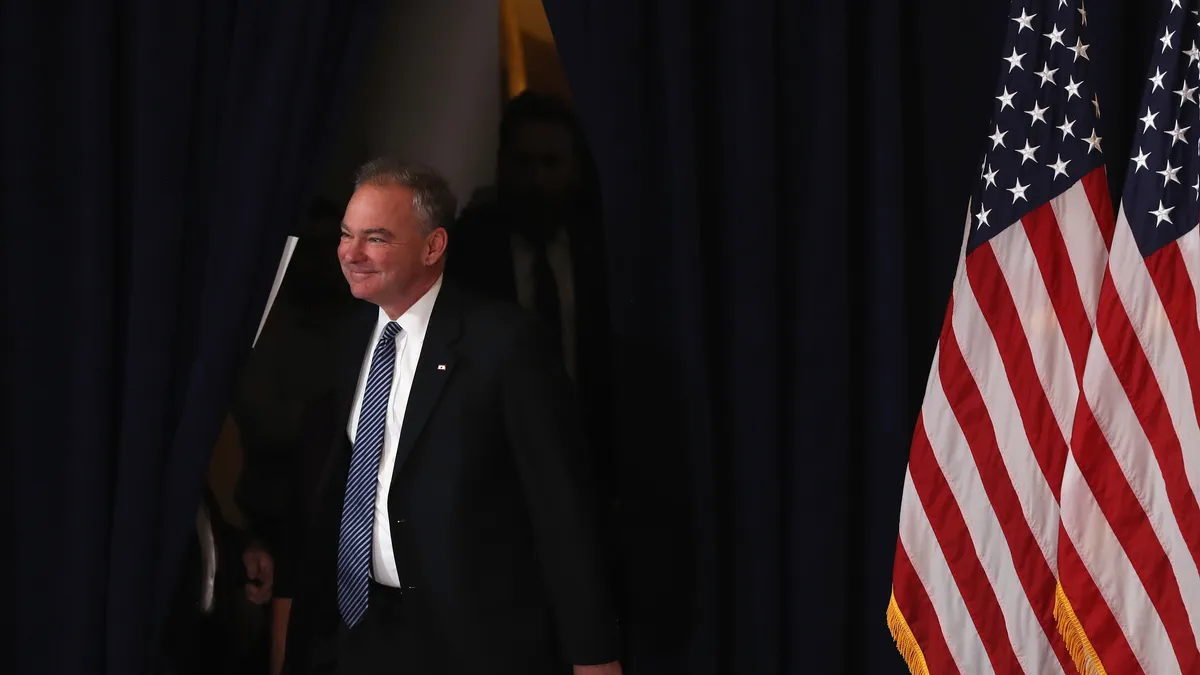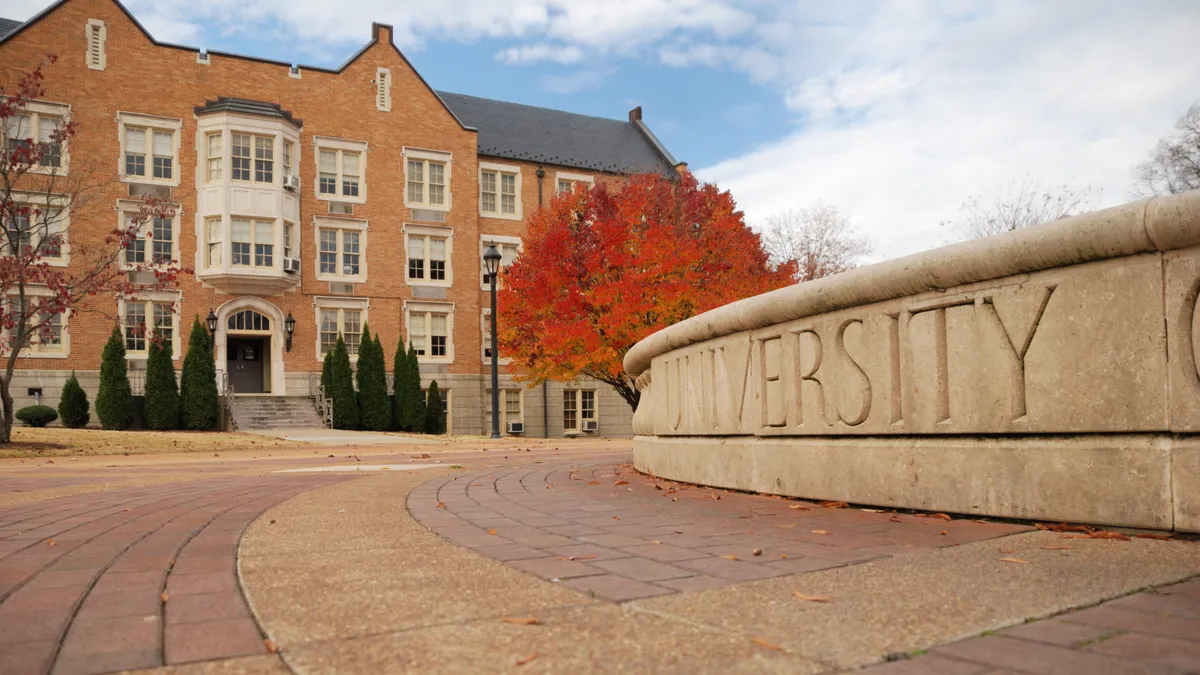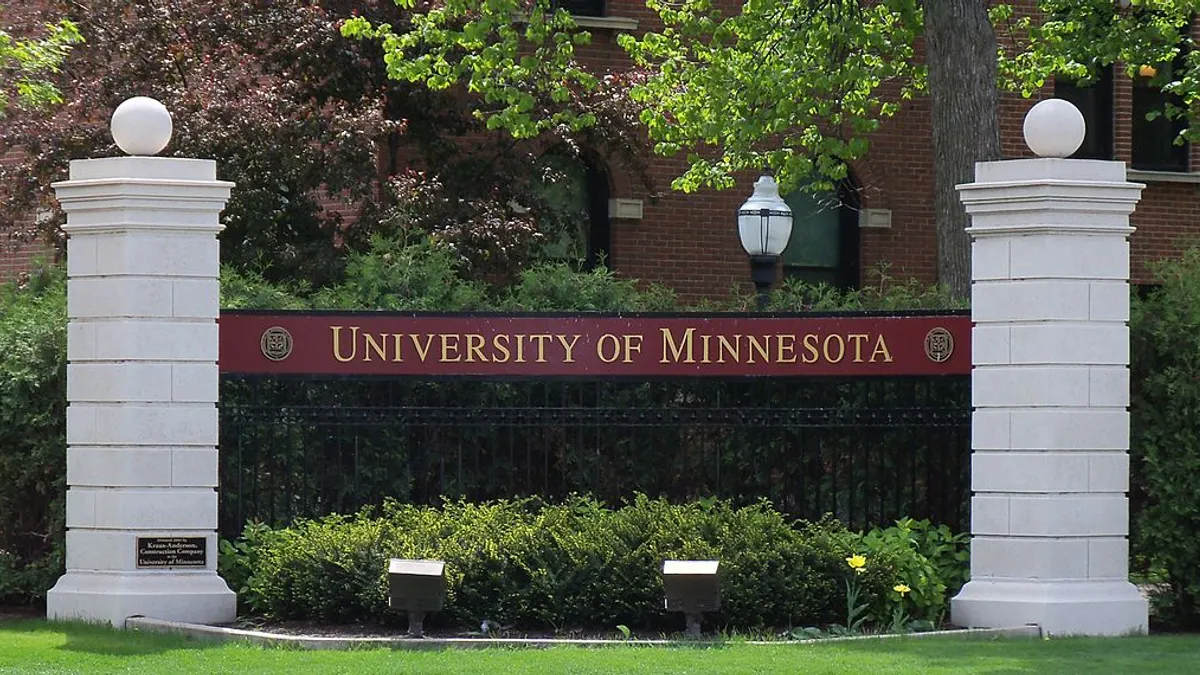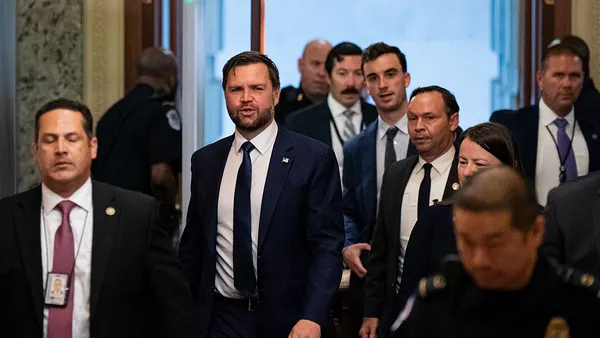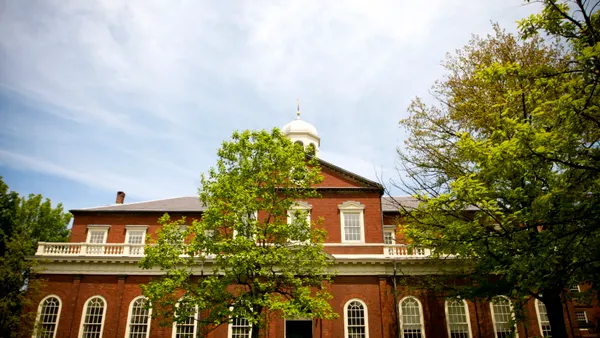UPDATE: June 9, 2020: The Senate on Tuesday passed the $250 billion U.S. Innovation and Competition Act, which means to improve the U.S.'s research competitiveness and curb Chinese influence.
But lawmakers removed a provision that would have greenlit federal Pell Grants to be used on programs as short as eight weeks. It still contains a raft of National Science Foundation funding for research at colleges and universities, including about $5.2 billion in scholarship money that would be provided to institutions and students directly, and $4.4 billion for research in key technology focus areas.
The measure now heads to the House. The White House supports the legislation.
Dive Brief:
-
Lawmakers are once again trying to expand the federal Pell Grant to job training programs of a shorter duration than are currently allowed.
-
The proposal is being added to Senate legislation that means to boost the country's research presence and combat foreign influence, Politico reported Monday. It would allow students in career training programs of eight weeks or more to be eligible for the grants. The cap is currently 15 weeks.
-
Officials have moved several times to make Pell Grants less restrictive. But critics of the idea fear the aid will be used for low-quality programs.
Dive Insight:
Lawmakers on several occasions have drafted bills to make programs shorter than 15 weeks eligible for Pell Grants, arguing that doing so would help students pay for training in high-demand fields.
The most recent proposal is an amendment to the Senate's U.S. Innovation and Competition Act and is similar to the bipartisan JOBS Act, spearheaded by Sens. Tim Kaine and Rob Portman, a Democrat and Republican, respectively. The two senators also put forth the new amendment.
The proposal contains safeguards to ensure Pell Grants wouldn't be used for programs with poor student outcomes. Institutions have to show, for instance, that graduates of short-term programs receive a median 20% increase in earnings after finishing them.
Colleges also have to disclose such information as completion rates and earnings to prospective students prior to them enrolling in the programs, and publish the data “prominently” on their websites.
Only programs offered by nonprofit and public colleges would be eligible. The amendment specifically excludes for-profit institutions, some of which have come under fire for having programs with poor student outcomes.
The education secretary must approve the programs and has 120 days to do so.
The American Association of Community Colleges said recently the legislation would be "a major victory" for two-year schools and their students who need financial help to pursue short-term programs. The National Skills Coalition, a nonprofit dedicated to expanding worker training, has also supported similar measures.
Yet detractors of the concept say short-term programs may not improve graduates' wages and social mobility.
A recent analysis of such programs in Washington state by left-leaning think tank New America found that about three-fourths of students who started a program completed it. On average, nearly all of the program graduates made enough to support a single-adult household, the organization found. Only completers from one type of program, marine science, made enough to support themselves and a family.



